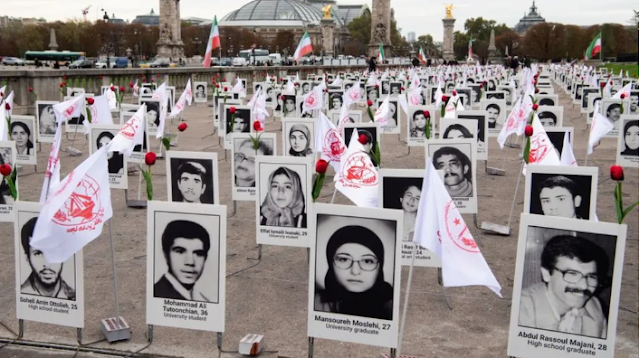444444444444
Iran's President Ibrahim Raisi, a prominent cleric known for his unwavering allegiance to the regime, tragically perished in a helicopter crash near the Azerbaijani border. Raisi, widely viewed as the successor to Iran's religious leader Ayatollah Ali Khamenei, held the position of the last president of the Islamic Republic of Iran, assuming office in 2021.
Born on November 4, 1960, in Mashhad, northeastern Iran, Raisi's religious upbringing shaped his identity profoundly. He traced his lineage back to Prophet Muhammad and pursued his education in Qom, a renowned center of Shiite Islamic scholarship. Following in his late father's footsteps, Raisi became a religious scholar.
Amidst the upheaval of the Islamic Revolution, Raisi continued his studies at Tehran's Shahid Motahari University, specializing in Islamic law and earning his doctorate. He swiftly earned trust among religious scholars as dissent against the pro-Western Shah Reza Pahlavi administration intensified, aligning himself closely with Ayatollah Khomeini's revolutionary ideals, particularly the role of religious scholars in governance.
Raisi's involvement in the notorious "Death Committee," implicated in the mass execution of Iranian political prisoners in 1988, drew significant scrutiny. Former political prisoners, survivors of the atrocities, sought justice, accusing Raisi of crimes against humanity, including genocide and torture. Despite the allegations, Raisi remained silent on his role in the executions, earning him the epithet "murderer."
Ascending to the position of Tehran prosecutor in 1989, Raisi wielded considerable power within the judiciary until 2014, presiding over various legal roles, including chief prosecutor at the Special Court of Clergy. His tenure was marked by a fierce crackdown on dissent, notably suppressing protests following the 2009 presidential election.
Raisi's ascent continued as he assumed leadership of Astan-ı Quds-i Reserve, Iran's largest foundation, in 2016, appointed by Ayatollah Khamenei. Despite an unsuccessful presidential bid in 2017, Raisi's crusade against corruption persisted, culminating in his election as Iran's 8th president in 2021, solidifying his position as Ayatollah Khamenei's potential successor.
During his presidency, Raisi pursued an assertive domestic and foreign policy agenda. Despite pledges to combat corruption and economic challenges, his administration faced criticism, notably following the controversial death of Mahsa Amini in custody.
Raisi's tenure witnessed regional tensions escalate, notably with Israel, as Iran's involvement in conflicts across the Middle East heightened. His unwavering support for Palestinian causes underscored Iran's enduring commitment to regional affairs.
Raisi's personal life, characterized by familial ties to religious and academic spheres, offered glimpses into his private world amidst the public scrutiny of his political career.









0 Comments:
Post a Comment